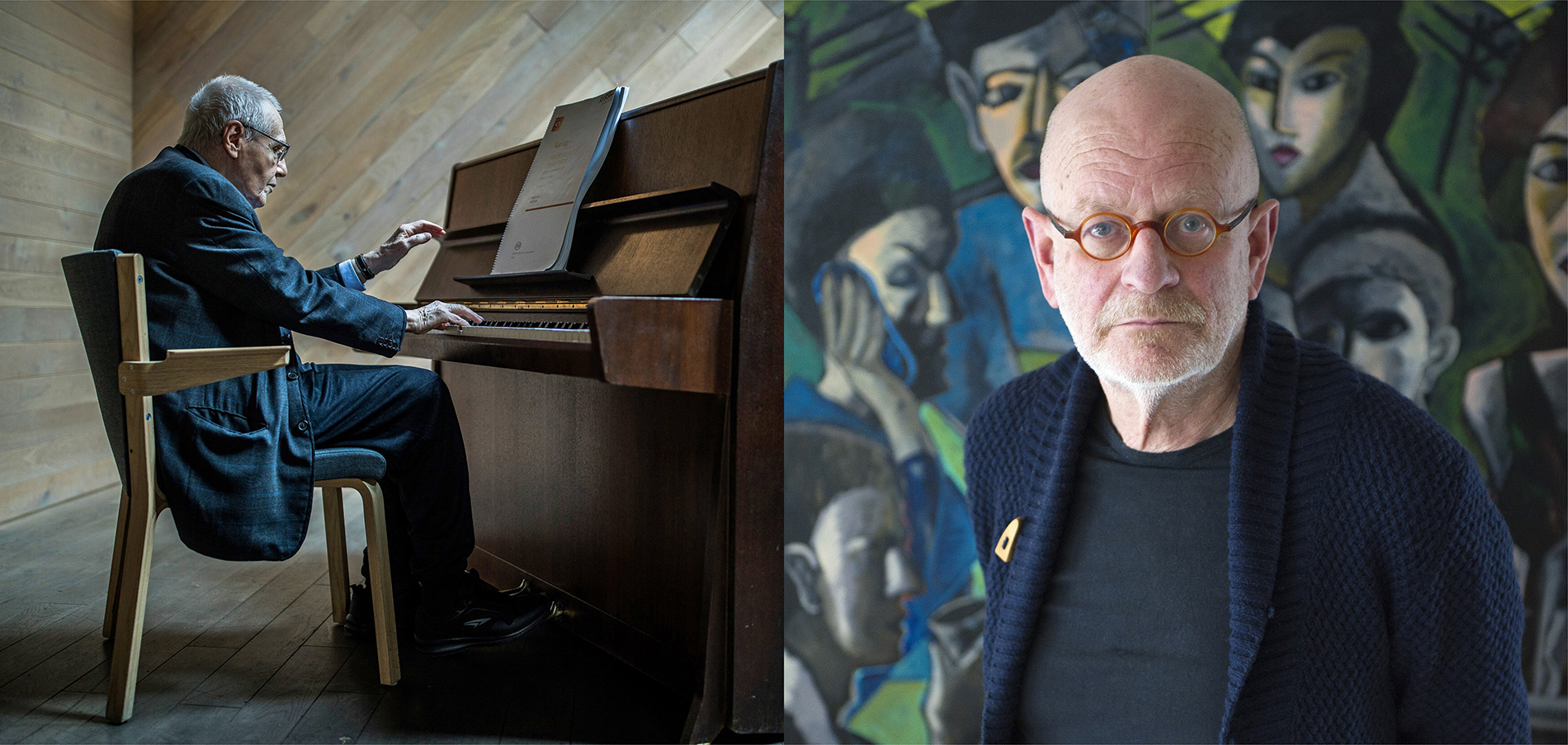Two Lifetimes of Music
Klaas de Vries (80) and György Kurtág (99) share a combined creative life spanning roughly 140 years. The body of work they have composed over these decades is awe-inspiring: diverse, groundbreaking, profound, beautiful, and pioneering. In three parts, ten specialised musicians pays tribute to their work.
Pianist Ellen Corver plays a central role in the program. She has worked closely with luminaries such as Karlheinz Stockhausen and György Ligeti. She has maintained a close relationship with Kurtág for many years. Klaas de Vries wrote his piano concerto for her, which will be performed in this concert in its version with sextet.
The first part is dedicated to Kurtág, focusing on his connection to the Netherlands. From 1997 to 1999, he lived in Amsterdam with his wife Márta, inspiring many musicians through his presence and teachings at conservatories. Ellen Corver will perform a series of short homages that Kurtág dedicated to Dutch individuals who were important to him. The part concludes with Kurtág's Beckett setting What is the Word in the version for voice and piano, performed by Gerrie de Vries, Klaas's wife. To put it mildly, Kurtág is extremely specific and precise about the performance of his music, and for years he considered no singer capable of performing What is the Word. This changed when he heard a cassette recording of Gerrie de Vries. Since then, it has become one of her signature pieces.
The second part combines early works by De Vries and Kurtág (from 1962 and 1943 respectively, written when they were 17 and 16) with the premiere of the completed version of the Hölderlin Songs for voice and piano. The third part features the Piano Concerto that De Vries composed in 1998, in its revised 2003 version. The program also includes a short documentary about Kurtág's stay in the Netherlands, featuring film footage from 1998 and contemporary reflections from Dutch musicians who worked with him.
